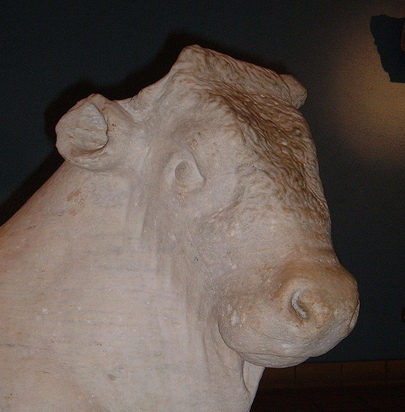In a discussion on the Jiscmail mailing list DC-GENERAL, which deals with general Dublin Core matters, a subscriber asked what to collectively call [sic] advocates of structured metadata
. In one of my very few contributions to such lists, I suggested Cataloguer. However, some of the other suggestions were as follows:
- Metamatician
- Advocate of Structured Metadata
- Metaphile (one reply suggested that this may be confused with a
Lover of change, One who is beyond being a lover, One who is between lovers, One who loves “between”, [or] King Aegeas (his wife was called Meta)
)
I would agree with the 2nd, for a) not being toss in a bucket and b) acknowledging that there is no real need for a separate word for an advocate of something, especially something this abstruse. I can’t think of too many similar examples. However, most of those who replied suggested names for those involved in creating or working with metadata in some way, which is what interests me:
- Information Architect
- Metastructurer
- Metadata-Architect
- Metadata-Hacker
- Metadata-Worker
- Metadata Officer
- Metaloger
- Content Analyst (someone who
creates a metatorial framework
) - Metator (someone who
applies it
. These last two were blamed on Content Wire although the actual glossary page is now defunct so couldn’t be checked) - Cartulary or Cartularist
- Metadatist
- Metadataist
- Data Architects
- MetadataMagician (which I understand to be humerous (while also understanding that not all suggestions are necessarily entirely serious))
- Datamancer (do.)
- Signifiers
- Metaologists
- Semantic Webmasters
- Cataloguer (Web Metadata)
Hurrah for the last one! I’m generally not in favour of renaming something because it has changed a little, and deals with a different medium: the word Library is still simpler, shorter, and more descriptive than Information Resource Centre, no matter how many videos, CD-ROMs, Internet terminals, or children’s storytimes you put in them: the job is much the same as it always was: storage and access to knowledge. I never understood why one had to refer to computing as Information Technology (IT), then as Information and Communication Technology (ICT): I translate all three as Computers (C) in my head. Anyway, a favourite with a few people was Information Architect, which seems to me an abuse of the word Architect, but which was argued for as follows:
This works well. Reasons: structured metadata requires an understanding and
application of web standards, classification systems, records management,
content management, search engine configuration capabilities, assets
management, how information is created and used etc. etc. etc. Wrapping a
metadata strategy/structure around these things is building an information
architecture. From my perspective it [is] the equivalent of a well designed
basement. If it’s not done right you have a house of cards.
As a cataloguer, I require an understanding and application of Web standards (especially if MARC is ever replaced with something less 70s), classification systems, catalogue search function configuration capabilities, and how information is created and used, if not content and (thank God) records management as I understand them.
I can understand that the term Cataloguer might suggest that the metadataist is contributing to a catalogue, which will not be the case for many people involved with Web applications, but my job as a cataloguer involves description of materials, the provision of controlled headings, and encoding all this in machine readable form; if this is not the same as an Information Architect or a Metastructurer, I don’t know what is. Metadata is often defined as data about data; Cataloguers have been cataloguing and providing data about data for centuries. If you do metadata, then I think you’re a cataloguer (or cataloger if you’re American).
I would go on to clarify that library cataloguers tend to do more than a lot of datamancers who think Dublin Core, RDF, and XML are the last word in metadata, because librarians structure the data inside the tags, but that’s probably best left for another day.
